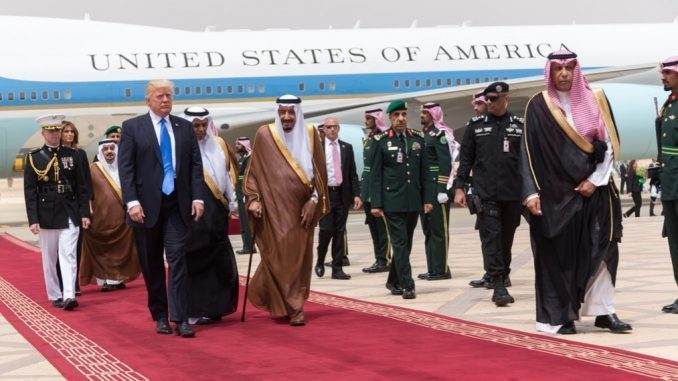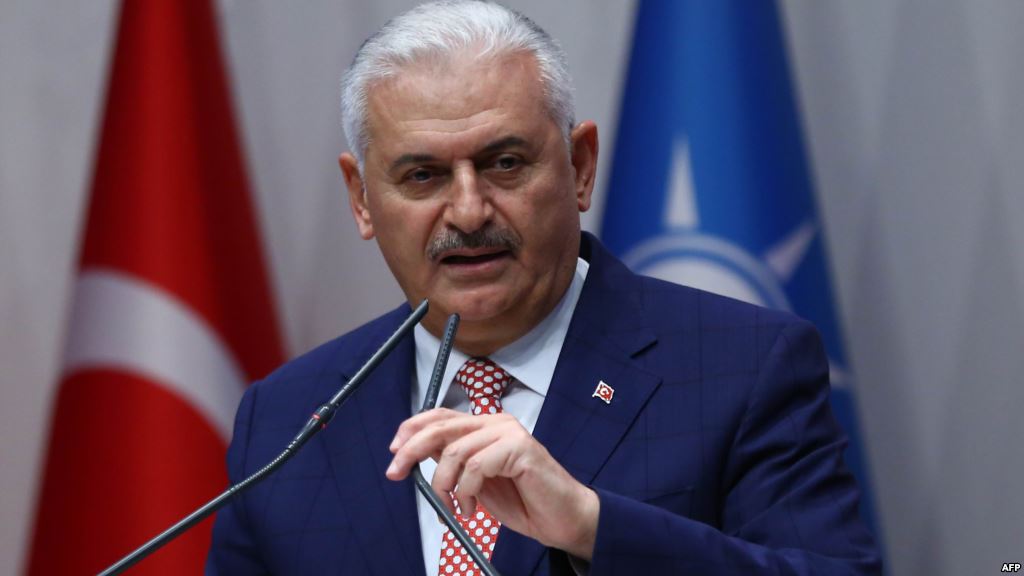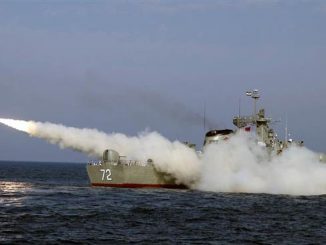
US President Donald Trump on Friday embarked on his first overseas trip, a historic eight-day journey that includes visits to the holiest sites of three major religions, an unprecedented summit with Muslim leaders and a major meeting of NATO allies.
In any president’s first foreign trip, particular symbolic importance is attached to the first country visited, and in that regard Trump will put the spotlight on the Kingdom of Saudi Arabia, which is greeting the U.S. president with a highly choreographed red carpet welcome, according to an ABC report, titled: “What to watch for in President Trump’s visit to Saudi Arabia”.
Despite possible areas of contention with Trump in the past, the Saudi Kingdom is looking forward to the dawn of “a new beginning,” according to Riyadh’s official website for the summit — a “highly anticipated event, the first of its kind in history,” according to the ABC report.
In Trump, there are hoping for an American president more closely aligned with their priorities, especially after years of perceived neglect under the Obama administration.
During his two days on the ground in the birthplace of Islam, Trump will take part in three key meetings.
The first is a U.S.-Saudi summit, where the two delegations will discuss the joint challenges they face like ISIS and Iran and their plans for continued cooperation on multiple fronts, including economic and military. It’s an important marker to “reinforce the historic partnership” between two countries, according to Saudi Foreign Minister Adel al-Jubeir, as they “open a new page.”
In particular, they will sign “several agreements that will further solidify U.S.-Saudi security and economic cooperation,” according to U.S. National Security Adviser H.R. McMaster. Among those is an arms deal package worth at least $100 billion, although some of the agreements were already negotiated under the Obama administration.
Second, the American delegation will meet with the other Gulf Arab countries of the region, known as the Gulf Cooperation Council, or GCC. While the meeting will also touch on the threat of terrorism, it is clear these countries are eager to discuss Iran — and given their involvement in the war in Yemen, this may be the only real chance for movement there.
Yemen has been torn apart by civil war for over two years now, with Saudi Arabia and its Gulf allies propping up the internationally-recognized government locked in a stalemate against Houthi rebels allied with Iran. The fighting has left nearly 8,000 dead, 7 million internally displaced and 17 million facing a hunger crisis.
The final and perhaps most important of these summits is the Arab Islamic-U.S. summit on Sunday, where Trump will be joined by leaders from more than 50 Muslim countries. It’s there that Trump will deliver a hotly anticipated speech on Islam and announce a new counterterror partnership.
“We’re going to have the president basically saying that this is not a war between the West and Islam, this is a war between good and evil and we all have to come togetherThe summit will address “building more robust and effective security partnerships to counter and prevent the growing threat of terrorism and violent extremism,” according to their website. And after the summit, Trump will participate in the inauguration of their new center to fight radicalism and promote moderate Islam…,” a senior administration official told ABC News.
More, according to Saudi FM ‘Jubeir’, means a new military partnership between the U.S. and the Islamic Military Alliance to Fight Terrorism, a counterterror alliance started by Saudi Arabia in 2015. The challenge for Trump, however, will be to make those commitments mean something more than a photo op.
A message for Iran
While the White House wants to focus on the counterterror fight and follow through on its main regional foreign policy objective of defeating ISIS, behind the scenes the Saudis and others will be harping on another subject that matters more to them: Iran, said ABC news.
In fact, to some experts, all the ceremony and pageantry of Trump’s visit disguises the Kingdom’s true intention, to get assurances from the U.S. president that he will take an aggressive line against Tehran. Wounded by President Obama’s diplomatic outreach to the Iranians in the form of 2015’s multilateral nuclear non-proliferation agreement, Saudi Arabia sees their neighbors across the Gulf as their chief rival and threat.
Getting the U.S. president to take a tough line against Iran may not be so hard. Trump campaigned against the Iranian nuclear agreement and many of his advisers including McMaster and Defense Secretary James Mattis have decried Iranian regional hegemony.
That tough talk was evident again this week even as the administration signed waivers to extend the Iran nuclear deal.
“That line of thinking is the same as the Saudis,” said Lori Plotkin Boghardt of the Washington Institute for Near East Policy. “Iran is the bigger threat to them, over ISIS.”
It’s not a position the Saudis have kept very secret.
“We will work with our allies, particularly U.S., to see that Iran is made to act like a normal country,” Jubeir told reporters Thursday.
An economic message for the American people
Finally, with Trump under a cloud of suspicion back home after an exhausting two weeks of scandals, the White House is hoping for some souvenirs to bring back home, according to ABC News.
In particular, they want to wave an economic package for the domestic audience as an example of Trump the deal-maker president helping America domestically.
“That’s the press release for folks back home,” said a former U.S. official who worked on Middle Eastern policy. “The sales, the jobs, the ‘Look at what I can do for our economy.'”
“The $100-billion arms sale will be part of that, but so will American investment packages in the Kingdom as it strives toward Saudi Vision 2030, its program to diversify the economy and reduce its dependence on oil,” the ABC report concluded.



